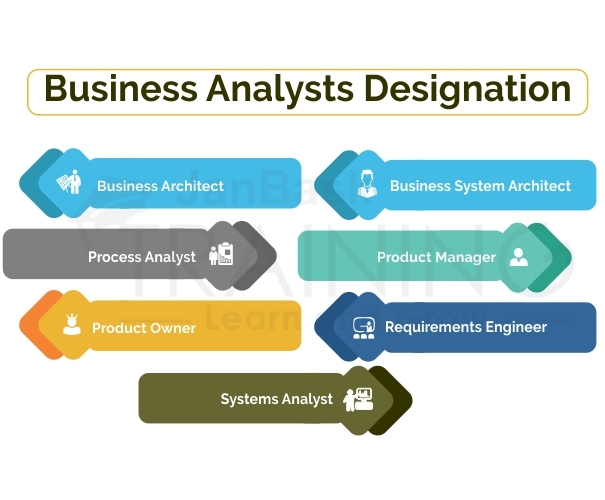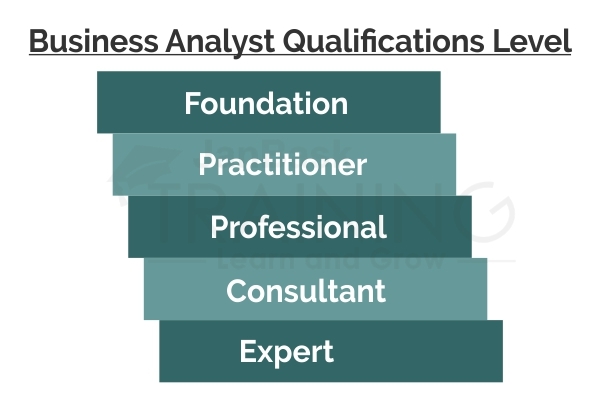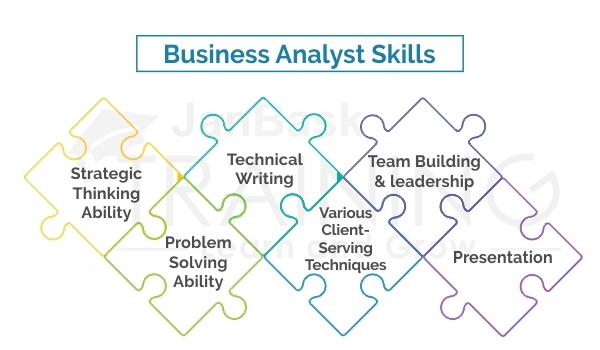09
JanYear End Sale : Get Upto 50% OFF on Live Classes + $999 Worth of Study Material FREE! - SCHEDULE CALL
A business analyst is a person who is involved in data assessment for a company and its associated systems for identification of needs and gives suitable resolution to the issues encountered. It is a well-defined role which needs to be handled with a matured mindset. Your work in the organization can be confined to a specific project or can cover other aspects. So, to analyze the current situation and make suggestions for the future, you should have a clear understanding of the work the organization is carrying out and also the industry it caters to.
It is not necessary that your role will be centered around the Information-Technology aspect of the business. Your role is important as you will be helping the organization to meet the goals of its internal and external stakeholders. You will also have to maintain links with both the internal and external departments or clients to convey how their inputs will make what difference to the organization.

The responsibilities of a business analyst are primarily to get complete knowledge about the business organization, its vision, strengths, issues, and areas of improvement. You should be able to provide accurate solutions which are majorly the IT and technological solutions. Here is a list of responsibilities which you will be expected to handle:
The role of a business analyst is a permanent one usually, but many organizations have also started to employ contractual or freelance analysts for a short-term commitment. The salary will, however, depend on the years of experience and the level of expertise you have. Latter if backed by suitable certifications generally gives you an edge over other contenders and also hands you better pay-out.
Read: Understanding The Background Of Business Process Re-engineering
This statistic will vary depending on the nature of your employment.
Even in a full-time commitment with a proper work-week, you will need to have an open and flexible approach to the number of work hours.
 Foundation Level
Foundation Level
Practitioner Level
Professional Level
Read: How to Become a Successful Business Analyst with No Experience
Consultant Level
Expert Level
There are a few skills which are necessary to be a good Business Analyst along with excellent soft skills. You are very often required to communicate between the IT department and some other peripheral of the organization, and thus you should be able to accurately perceive, comprehend, analyze and state the information which is needed to the appropriate person at the right time.

Here are a few skills which you should possess:
Along with the above, there are some technical pockets about which you should have the right knowledge like data modeling, project management, SQL, banking, Scrum, business intelligence.
Read: Master The Skills Of Project Management Tools & Be Successful
Business Analysts are needed in almost all the sectors ranging from multinational corporations to small independent enterprises. There has been a rising trend of self-employed or private consultants in the area. Some of the notable job agencies which will help to get you the right agency are:
Technojobs, CWjobs, businessanalystjobs, Dice, etc.
Every kind and level of the organization needs business analysts, so there is a huge scope of the same in the UK. At the beginner level, you may consider gaining experience by summer internships, work shadowing, or any other kinds of projects which will be very helpful for the development of your career. You may, with progress, specialize into a particular domain of your interest. Many organizations offer highly competitive salaries for the right talent. You should know your core and also consider upskilling along your journey.
 Pinterest
Pinterest
 Email
Email
The JanBask Training Team includes certified professionals and expert writers dedicated to helping learners navigate their career journeys in QA, Cybersecurity, Salesforce, and more. Each article is carefully researched and reviewed to ensure quality and relevance.

Cyber Security

QA

Salesforce

Business Analyst

MS SQL Server

Data Science

DevOps

Hadoop

Python

Artificial Intelligence

Machine Learning

Tableau
Search Posts
Related Posts
What Should You Know About A Business Analyst Internship?
![]() 990.4k
990.4k
What is a Business Analyst? Definition, Functions & Real-World Relevance
![]() 585.4k
585.4k
Business Intelligence Analyst skills that you should be aware of
![]() 418.7k
418.7k
How Important is to Have Domain Knowledge of a Business Analyst?
![]() 7.1k
7.1k
What Is Skill Mapping and Why Does Your Business Need It?
![]() 4.2k
4.2k
Receive Latest Materials and Offers on Business Analyst Course
Interviews